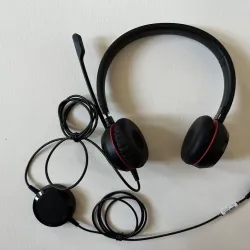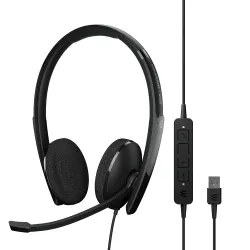Buy a Good Laptop Screen Online | Acer ASUS HP Dell Lenovo
Introduction of the Laptop screen
A laptop screen, also known as a display panel, is the primary output device on a laptop computer. It is a flat panel display that uses liquid crystal display (LCD) technology to produce images. Laptop screens come in various sizes and resolutions, ranging from small screens of 11 inches to larger screens of 17 inches or more.
The screen is an essential component of a laptop computer as it allows users to view and interact with their digital content, such as documents, images, videos, and websites. The quality of a laptop screen can significantly impact a user's experience, including color accuracy, brightness, contrast, and viewing angles.
Modern laptops often feature high-resolution screens, such as Full HD (1920x1080), Quad HD (2560x1440), or even 4K (3840x2160), providing sharp and clear visuals. Some laptops also come with touchscreen displays, allowing users to interact with the device using touch gestures.
Overall, the laptop screen plays a critical role in providing a user-friendly and enjoyable experience when using a laptop computer.
How Choosing the right laptop screen resolution
Choosing the right laptop screen resolution depends on your personal preferences, usage, and budget. Here are some factors to consider when selecting a laptop screen resolution:
Screen Size:
The screen size affects the resolution selection. A larger screen with a low resolution will have a lower pixel density than a smaller screen with the same resolution. This means that the larger screen may appear grainy or pixelated. A general rule is that higher resolutions work better on larger screens.
Usage:
The intended usage of your laptop will influence your screen resolution choice. If you're using your laptop for simple tasks such as browsing the internet, sending emails, and streaming videos, then a lower resolution screen (e.g., 1366x768) may suffice. However, if you're using your laptop for more demanding tasks such as photo and video editing or gaming, then a higher-resolution screen will be more appropriate.
Budget:
High-resolution screens typically come at a premium. If you're on a tight budget, you may have to compromise on screen resolution to get a laptop with better performance features.
Personal preference:
Ultimately, the screen resolution you choose comes down to your personal preference. Some users prefer high-resolution screens for their clarity, while others prefer lower-resolution screens for their larger fonts and icons.
In summary, higher resolutions work better for larger screens and demanding tasks, but they come at a premium. Lower resolutions may suffice for simple tasks, but they may not be as clear as higher resolutions. It's best to balance your needs and budget to choose the right resolution for your laptop screen.
How to avoid physical damage to your laptop screen
Here are some tips to avoid physical damage to your laptop screen:
Use a protective case:
A laptop case or sleeve can help protect your laptop from scratches, dents, and other physical damage.
Keep your laptop away from direct sunlight:
Prolonged exposure to direct sunlight can damage your laptop screen by causing discoloration, fading, or even warping.
Clean your screen with a soft cloth:
Avoid using abrasive materials or harsh chemicals to clean your screen as this can scratch or damage the screen coating.
Avoid placing heavy objects on the laptop:
Placing heavy objects on your laptop, such as books or other electronic devices, can damage the screen or even crack it.
Don't carry your laptop with the screen open:
Always close the laptop lid when carrying it to prevent accidental damage to the screen.
Avoid bending the screen:
Do not put pressure on the back of the screen or try to bend it as this can cause permanent damage.
By following these tips, you can help to avoid physical damage to your laptop screen and prolong the life of your laptop.
Here are some general specifications and features of popular laptop brands:
Acer:
Offers a wide range of laptops, including budget-friendly options and gaming laptops
Typically features the Windows operating system
Screen sizes range from 11 inches to 17 inches
Offers options for SSD storage and dedicated graphics cards
Known for their high-resolution displays and long battery life
Asus:
Offers a variety of laptops, including ultrabooks, gaming laptops, and 2-in-1 convertibles
Features Windows operating system
Screen sizes range from 11 inches to 17 inches
Offers options for SSD storage and dedicated graphics cards
Known for their sleek designs and innovative features, such as the ASUS ScreenPad
Dell:
Offers a range of laptops, including business laptops, gaming laptops, and 2-in-1 convertibles
Features Windows operating system
Screen sizes range from 11 inches to 17 inches
Offers options for SSD storage and dedicated graphics cards
Known for their durability and reliability, as well as their excellent customer support
HP:
Offers a range of laptops, including business laptops, gaming laptops, and 2-in-1 convertibles
Features Windows operating system
Screen sizes range from 11 inches to 17 inches
Offers options for SSD storage and dedicated graphics cards
Lenovo:
Offers a range of laptops, including business laptops, gaming laptops, and 2-in-1 convertibles
Features Windows operating system
Screen sizes range from 11 inches to 17 inches
Offers options for SSD storage and dedicated graphics cards
Known for their excellent keyboards and build quality, as well as their popular ThinkPad line for business users
The type of screen that is better for a laptop depends on personal preference and usage. However, in general, IPS (In-Plane Switching) screens are considered to be better than TN (Twisted Nematic) screens as they offer better-viewing angles, color accuracy, and contrast. IPS screens are also less prone to color shifting and have a more natural color reproduction. However, IPS screens tend to be more expensive than TN screens, so it's important to consider your budget when choosing a laptop screen.
Yes, laptop screens can be replaced. If the laptop screen is cracked, damaged, or malfunctioning, it can be replaced by a professional technician. However, the cost and feasibility of replacing a laptop screen depending on the specific make and model of the laptop. In some cases, it may be more cost-effective to replace the entire laptop instead of just the screen. It's important to consult with a professional technician to determine the best course of action if your laptop screen needs to be replaced.
The cost of a laptop screen in India can vary widely depending on the make and model of the laptop and the type of screen required. In general, the cost of a laptop screen can range from Rs. 3,000 to Rs. 15,000 or more. However, the cost of replacing a laptop screen may also include additional charges for labor and installation. It's important to consult with a professional technician or repair service to get an accurate estimate of the cost of replacing a laptop screen.
Whether a laptop screen is worth repairing depends on the specific situation. In general, if the cost of repairing the laptop screen is less than the cost of replacing the laptop or buying a new one, then it may be worth repairing. However, if the laptop is older or has other underlying issues, it may be more cost-effective to replace the laptop instead of repairing the screen. It's important to consult with a professional technician to determine the best course of action for your specific situation.


















